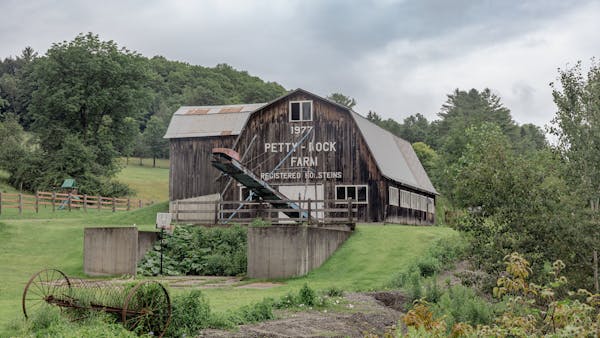
Advantages of Living in Rural Areas

Tired of city noise and cramped living spaces? Moving to the countryside offers a refreshing alternative with numerous benefits for your lifestyle. Living in rural areas typically provides more space, privacy, and a lower cost of living compared to urban environments, allowing for a potentially higher quality of life with less daily stress.
There are advantages of living in rural areas such as rural living connects people more closely with nature and often fosters stronger community bonds. Homeowners in rural areas can enjoy larger gardens and properties, keeping pets that might not be practical in cities, and having the freedom to use their land as they wish. The peaceful surroundings provide a natural escape from the constant stimulation of urban life.
The financial aspects are equally appealing for many families. The cost of living in rural areas is frequently lower than in metropolitan cities, with more affordable housing options that offer significantly more space for the money. This economic advantage allows rural residents to potentially save more or enjoy a less financially stressful lifestyle while experiencing the simple pleasures of countryside living.
Tranquility and Natural Beauty
Rural areas offer a retreat from the hustle of urban life with their natural surroundings and peaceful atmosphere. The combination of quiet environments and stunning landscapes creates a uniquely calming living experience.
Peaceful Living Environment
Rural living provides a significant reduction in noise pollution compared to urban areas. Without the constant sounds of traffic, construction, and crowds, residents enjoy a tranquil environment that promotes better sleep and reduced stress levels.
The peaceful atmosphere extends beyond just quiet surroundings. Lower population density means less crowding and fewer lines at local establishments. This creates a more relaxed pace of life where residents don’t feel constantly rushed.
Studies show that this quieter environment can contribute to improved mental health. The absence of urban stressors allows the mind to rest and recover from the overstimulation often experienced in cities. Many rural residents report feeling a sense of calm simply from the absence of constant background noise and activity that dominates city life.
Scenic Landscapes and Wildlife
Rural areas showcase nature’s beauty through open fields, forests, mountains, and waterways. These natural settings provide ever-changing scenery throughout the seasons, from spring blooms to autumn foliage. Wildlife viewing becomes part of daily life rather than a special occasion. Residents might regularly spot deer, rabbits, birds, and other animals right from their windows or yards.
The night sky presents another natural wonder, with stars clearly visible without light pollution. Many rural dwellers can see the Milky Way from their properties—a sight often completely hidden to city residents. These natural elements create what many describe as a mood-lifting effect. The beauty of rural landscapes provides daily visual pleasure that can enhance overall quality of life and wellbeing.
Community and Lifestyle

Rural living offers unique community experiences and lifestyle advantages that many find deeply satisfying. The social fabric of country areas combines personal connections with a rhythm that allows for more meaningful interactions and traditions.
Close-Knit Community Bonds
In rural communities, neighbors often know each other by name and maintain lasting relationships across generations. This personal connection creates a support network that can be invaluable during difficult times. When someone faces a challenge, rural communities frequently rally together with practical help like meal preparation or assistance with farm chores.
Many rural residents report that this closer proximity to relatives strengthens family bonds. The shared knowledge of local history and family connections creates a sense of belonging that’s harder to find in anonymous urban settings.
The interdependence of rural communities fosters trust. People regularly leave doors unlocked and share resources like tools, equipment, and skills. This cooperative spirit builds resilience and a genuine sense of community identity.
Slower Pace of Life
Rural areas offer a simpler pace of life that allows residents to escape the constant rush of urban living. Morning commutes typically involve scenic drives rather than congested traffic, reducing daily stress. The reduced hustle creates space for thoughtful living. People have time to chat at the local store, enjoy sunsets, or simply appreciate natural surroundings. This unhurried atmosphere encourages mindfulness and presence in daily activities.
The peaceful and quiet environment allows for better sleep and reduced noise pollution. Without constant sirens, traffic, and urban commotion, rural residents often experience improved mental well-being and focus. Children benefit from this calmer setting too, with freedom to play and explore that develops independence and creativity.
Cultural and Local Events

Rural communities maintain vibrant traditions through distinctive local celebrations. County fairs showcase agricultural achievements, local talent, and regional crafts while bringing entire communities together across generations.
Seasonal festivals reflect the agricultural calendar, from spring planting celebrations to harvest festivals. These events strengthen community bonds while preserving cultural heritage unique to each region. Local establishments like diners, general stores, and community centers serve as social hubs. Friday night high school football games or community theater productions receive enthusiastic support from residents who take pride in local achievements.
Many rural areas host farmers’ markets that celebrate local produce and craftsmanship. These gatherings combine commerce with socializing, allowing neighbors to connect while supporting the local economy. The authentic nature of these events creates genuine cultural experiences rather than commercialized entertainment.
Health and Wellbeing

Living in rural areas offers significant advantages for physical and mental health. The natural environment provides cleaner surroundings, better access to wholesome foods, and more opportunities for outdoor activities that boost overall wellness.
Cleaner Air and Water
Rural areas typically have lower levels of air pollution compared to urban centers. With fewer cars, factories, and industrial activities, the air contains less harmful particulates and chemicals that can damage lungs and overall health.
This cleaner air quality can lead to fewer respiratory problems and allergies. Many people with asthma or other breathing conditions report improvement when they move to rural settings. Water quality often benefits from less industrial contamination as well. Rural water sources may have fewer chemical additives and pollutants, though well water should still be tested regularly.
Studies show that exposure to cleaner environments can boost immunity and reduce stress. The simple act of breathing fresher air has been linked to improved cognitive function and better sleep patterns. Therefore, clean air and water are among the advantages of living in rural areas.
Access to Fresh Food
Rural living provides unique opportunities to consume fresher, more nutritious food. Many rural residents can grow their own vegetables and fruits, ensuring optimal nutrition and flavor while knowing exactly how their food was produced.
Local farmers markets and roadside stands offer seasonal produce harvested at peak ripeness. This food travels shorter distances from farm to table, preserving nutrients that can be lost during long shipping and storage periods.
Some rural communities maintain strong local food systems that include:
- Community gardens
- Farm-to-school programs
- Food cooperatives
- Small-scale meat and dairy producers
These local food networks not only provide nutritional benefits but also strengthen community bonds and support the local economy. Studies show that people who eat locally-grown food tend to consume more fruits and vegetables overall.
Benefits of Outdoor Activities
Rural environments naturally encourage physical activity through abundant outdoor recreation opportunities. Residents have easier access to hiking trails, fishing spots, swimming holes, and open spaces for various activities.
Daily chores in rural settings often incorporate natural movement. Gardening, caring for animals, and maintaining property provide consistent, functional exercise that urban dwellers might need to seek out at gyms. Research indicates that rural living can benefit heart health through:
- Reduced stress from natural surroundings
- More consistent daily physical activity
- Lower exposure to urban environmental stressors
- Better sleep quality in quieter environments
Time spent in nature has documented effects on mental health too. Rural residents report lower rates of anxiety and depression when they regularly engage with the natural world around them. This makes a rural life more desirable than an urban one.
Affordability and Economic Advantages

Rural living offers significant financial benefits that can improve quality of life and provide unique economic opportunities. The cost savings and potential for agricultural income make rural areas attractive for many families and individuals.
Lower Cost of Living
Housing in rural areas is much more affordable than in cities, allowing residents to purchase larger homes or land for the same price as a small urban apartment. This housing value difference can lead to substantial long-term savings.
Property taxes are typically lower in rural communities, reducing the annual cost of homeownership. Many rural residents also enjoy lower insurance rates for both homes and vehicles. Utility costs often decrease in rural settings. Without city surcharges and fees, residents may pay less for water, sewage, and other essential services.
Daily expenses like groceries, dining, and entertainment frequently cost less in rural areas. The reduced price pressure creates more breathing room in household budgets. The cost is low because most food is produced by the people themselves.
Economic Opportunities in Agricultural Sector
Rural areas provide unique income possibilities through farming and agriculture. Small-scale farming can supplement family income while providing fresh, healthy food. Specialized agricultural ventures like organic farming, heirloom crop cultivation, or artisanal food production can create profitable niche businesses. These operations often benefit from lower startup costs due to cheaper land prices.
Agricultural tourism represents a growing economic opportunity. Farm stays, harvest festivals, and educational tours allow rural residents to capitalize on natural beauty and farming activities. Government programs frequently offer grants, loans, and tax incentives specifically for rural agricultural businesses. These programs can significantly reduce the financial barriers to starting agricultural ventures.
Frequently Asked Questions on advantages of living in rural areas
Many people wonder about the specific advantages of rural living. These questions explore how country life can enhance well-being, finances, social connections, and educational opportunities.
What are the top benefits of residing in a rural environment?
Rural areas offer significantly more privacy than urban locations, allowing residents to enjoy personal space without close neighbors. The opportunity to have a bigger garden is another key benefit, providing space for gardening, recreation, and outdoor living.
Rural environments typically feature fewer crowds and reduced noise, creating a more peaceful atmosphere for daily living.
How does living in a rural area positively impact one’s lifestyle?
Rural living often leads to decreased stress levels due to the calmer surroundings and connection with nature. The minimal traffic in country areas means less time commuting and fewer transportation headaches. Rural residents enjoy the freedom to do whatever they want on their property, whether it’s keeping animals, building structures, or simply enjoying the open space.
Can you list the health and well-being advantages of rural living?
Clean air quality is typically higher in rural areas, reducing respiratory issues and promoting better overall health. The natural surroundings encourage more outdoor activities and exercise, from hiking to gardening. Lower population density can reduce exposure to contagious illnesses that spread more easily in crowded urban environments.
In what ways can rural living contribute to financial savings?
Housing costs are generally lower in rural areas, with more square footage and land available for less money than in urban centers. Property taxes tend to be significantly lower in rural counties, reducing the ongoing costs of homeownership. The cost of living, including groceries, services, and entertainment, is often more affordable in rural communities.
What are the social and community advantages of rural areas?
Rural communities place strong focus on personal connections between residents, creating meaningful social networks. Neighbors in rural areas often know each other well and readily offer help during difficult times or emergencies. Community events in small towns typically involve a larger percentage of residents, fostering a sense of belonging and shared experience.
How does the rural setting influence educational and upbringing opportunities?
Children in rural areas often experience more freedom to explore outdoors, developing independence and connection with nature. Rural schools typically have smaller class sizes, potentially allowing for more individualized attention from teachers.
Young people in rural communities frequently have opportunities to learn practical skills through involvement in agriculture, crafts, and community traditions.









Leave a Reply